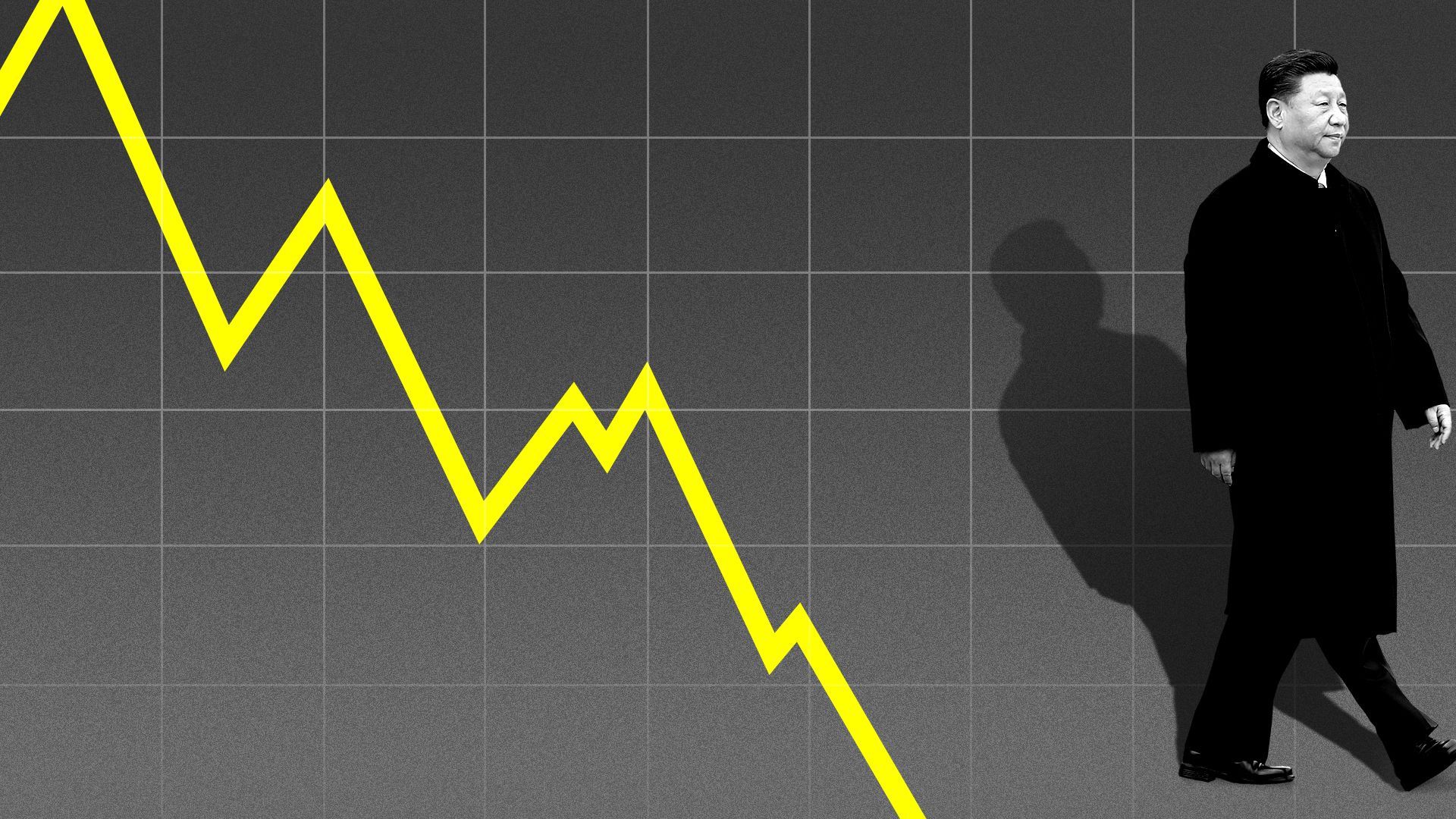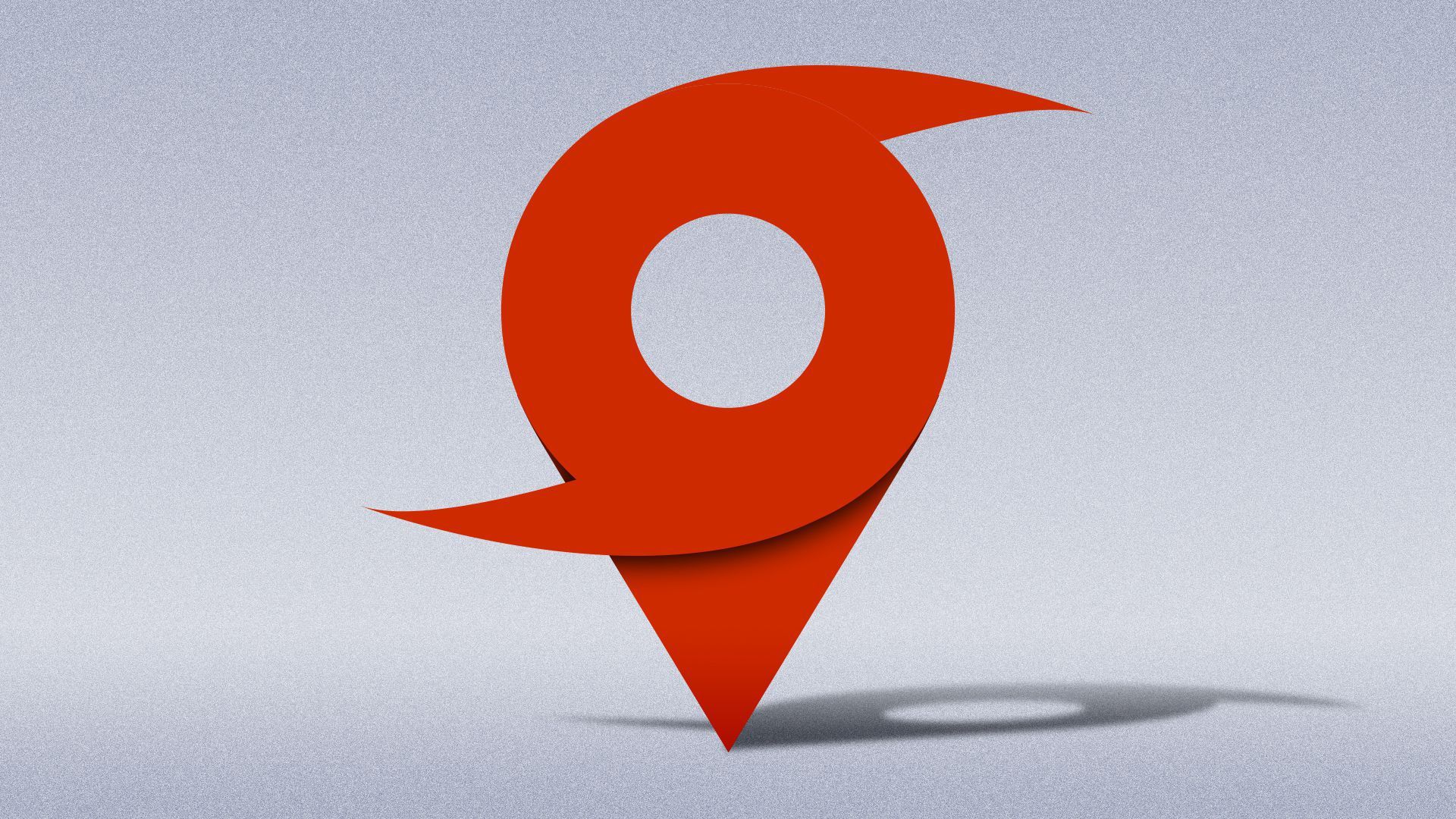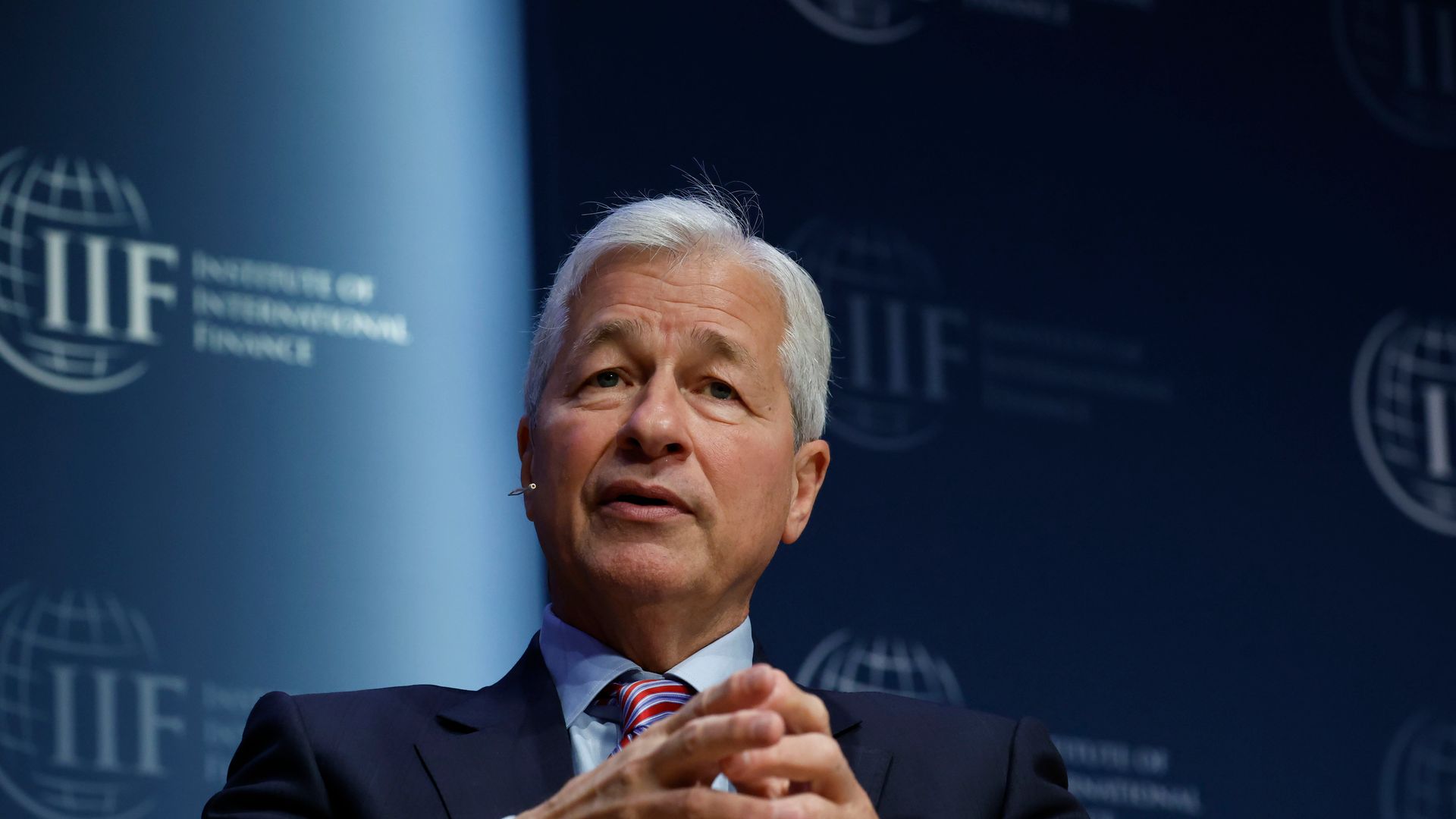| Xi Jinping's third term ruling China won't be based on generating the kind of economic growth that defined the world economy in recent decades, Matt writes. Why it matters: China drives economic decision-making worldwide, from the investments made by Australian iron miners and German automakers to the planting patterns of Argentine and Iowan soybean farmers — to the borrowing decisions of the U.S. government, for which China is a massive creditor. Driving the news: Xi is all but certain to break with the traditional two-term limit for the country's leaders. He's expected to be named to a third term at the twice-a-decade congress for leaders of the ruling Communist Party, which just got underway. Backdrop: For decades, the party — members make up just 7% of the population — has based its legitimacy on China's massive economic growth, which has lifted nearly 800 million of its people out of extreme poverty. Yes, but: China's economy is not just slowing fast — it's seriously struggling. - Xi's own zero-COVID policy — and the repeated, massive and often incredibly harsh lockdowns of cities that serve as China's economic engines — has hobbled activity.
- The housing market — which accounts for as much as 30% of GDP once related industries are factored in — is in deep disarray, with prices dropping and developers tottering on the brink of bankruptcy.
- Longer-term prospects for economic growth look equally dismal, as collapsing birthrates will saddle it with lopsided demographics — and similar financial issues as Japan.
Between the lines: The downbeat outlook for the economy is a key reason the party has shifted the storyline that justifies its monopoly on power away from the economic performance, and toward a narrative that emphasizes restoring China to its rightful place as a great power. Yes, but: In his opening address to the congress on Sunday, Xi reiterated that economic development remains the party's "top priority in governance," language that China's leaders have used since 2002, Bloomberg's Tom Hancock points out. - Some analysts thought Xi could skip that statement this year, signaling a more serious pivot away from growth to security as the top concern for China's policymakers.
What to watch: Any announcement on who will replace retiring premier Li Keqiang, once considered the country's top economic official, in the Politburo Standing Committee, the seven-member group at the heart of political power in China. - Li, closely connected to now-retired President Hu Jintao, had seen his power and influence ebb considerably in recent years, as Xi consolidated power.
| 










No comments:
Post a Comment